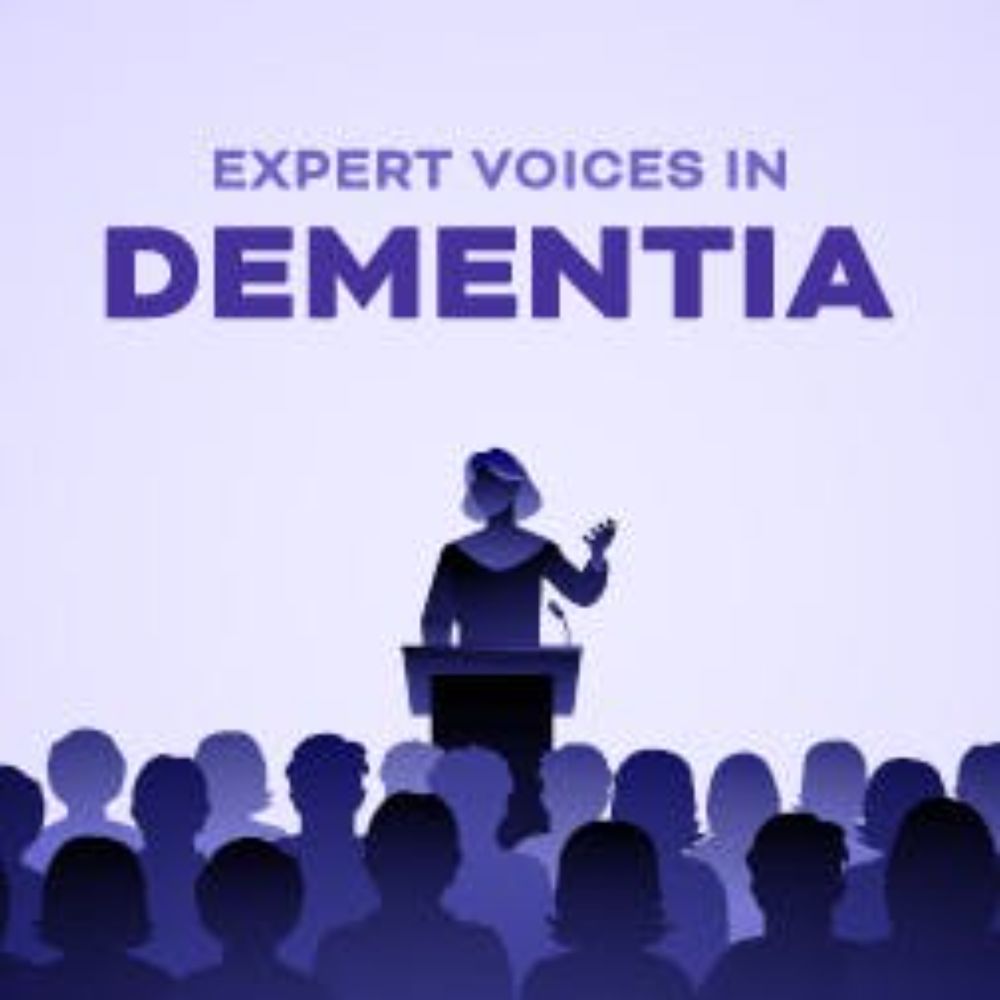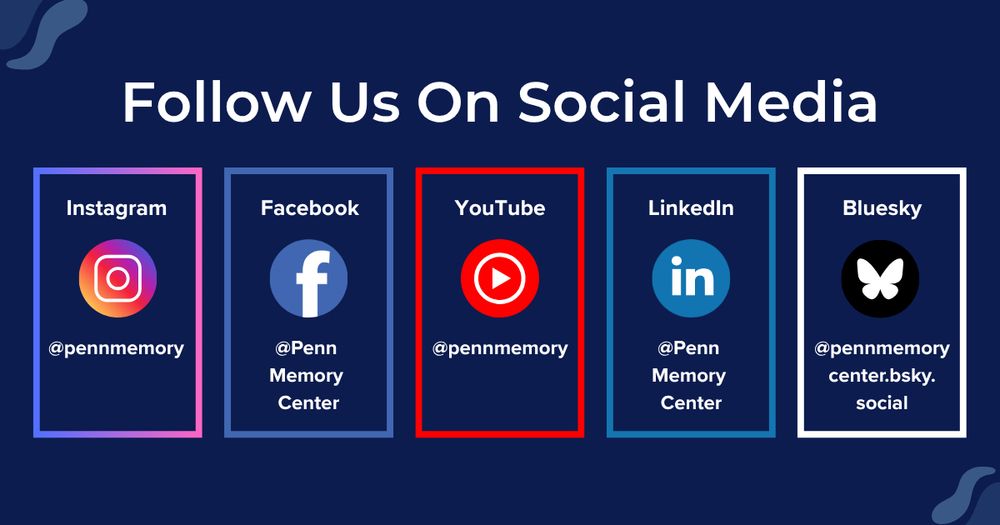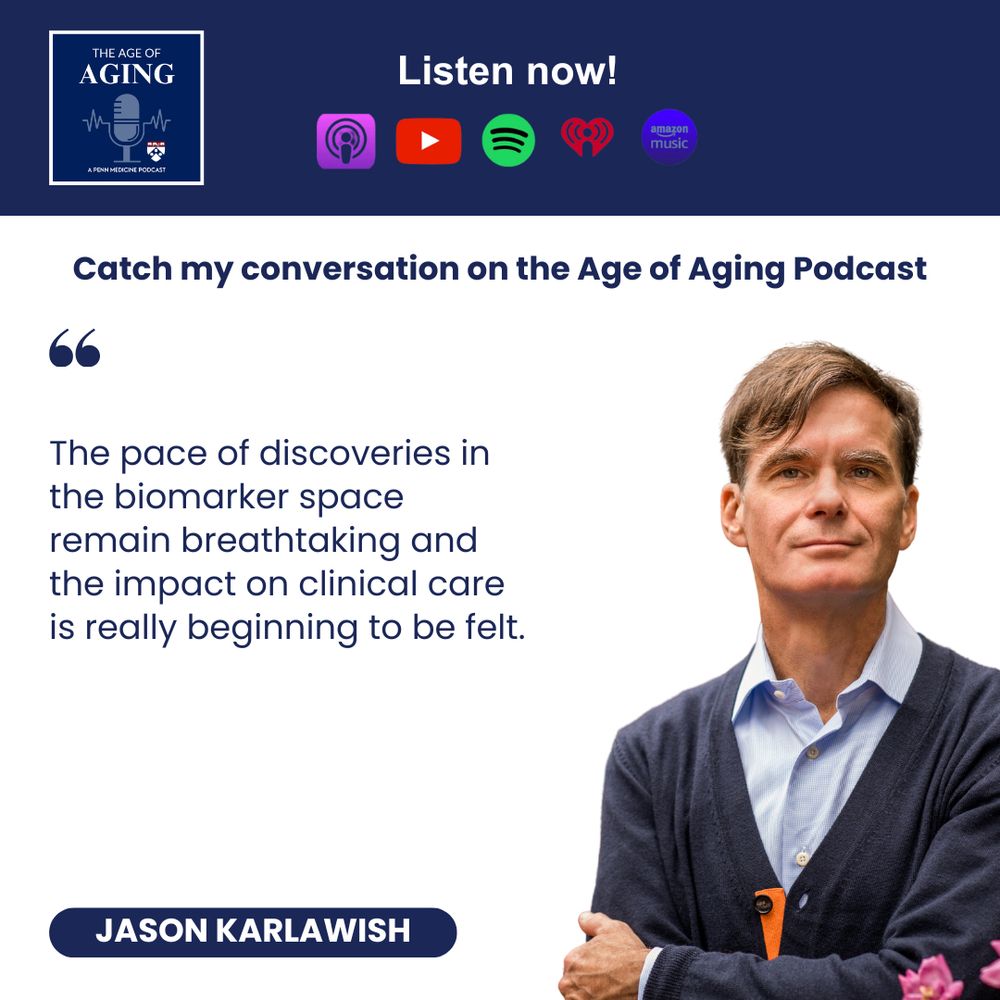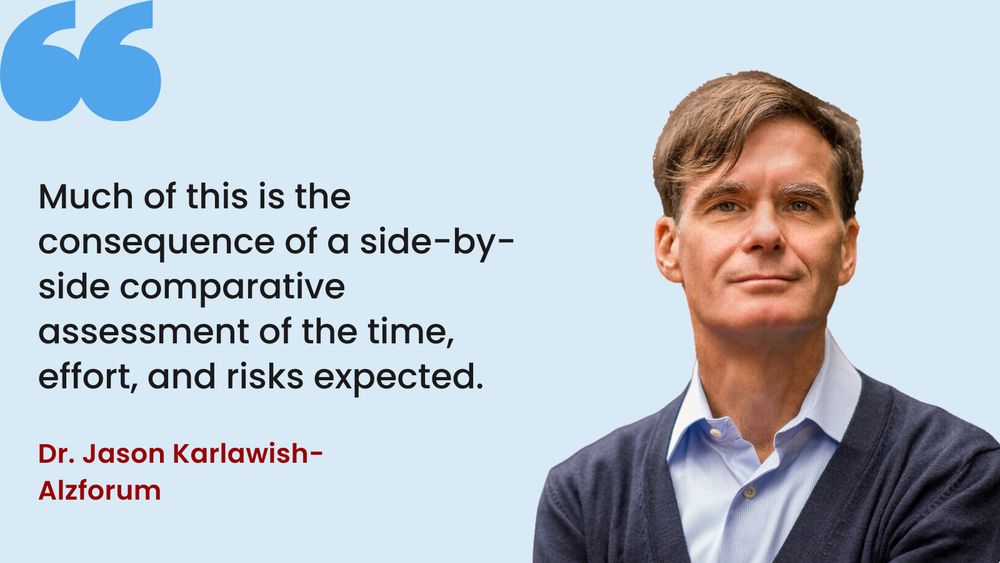
Check it out now!

Check it out now!
Inspired, caregiver Lynn Cronomiz trained her own dog to comfort others.
Hear her story on the latest Age of Aging podcast 🎧

Inspired, caregiver Lynn Cronomiz trained her own dog to comfort others.
Hear her story on the latest Age of Aging podcast 🎧
Our latest episode celebrates this bond, with stories from caregivers and expert insights into why humans and dogs just get each other.

Our latest episode celebrates this bond, with stories from caregivers and expert insights into why humans and dogs just get each other.
Drs. Catherine Auriemma & Carolyn Chow share research that uncovers hopes, worries, and family goals in care.
Hear more on the Expert Voices in Dementia podcast.

Drs. Catherine Auriemma & Carolyn Chow share research that uncovers hopes, worries, and family goals in care.
Hear more on the Expert Voices in Dementia podcast.
Hear her stories on guardianship, family dynamics, and protecting autonomy in our new episode of The Age of Aging.

Hear her stories on guardianship, family dynamics, and protecting autonomy in our new episode of The Age of Aging.
📍Find us on Instagram, Facebook, YouTube, LinkedIn, and Bluesky

📍Find us on Instagram, Facebook, YouTube, LinkedIn, and Bluesky
In our new episode of The Age of Aging, Charlie Sabatino shares lessons from 37 years with the ABA Commission on Law and Aging.
🎧 Tune in here: bit.ly/4mgE94s

In our new episode of The Age of Aging, Charlie Sabatino shares lessons from 37 years with the ABA Commission on Law and Aging.
🎧 Tune in here: bit.ly/4mgE94s
New American Heart Association guidelines: treat it early with diet & exercise.
“If you catch it early, you can gain many more years of healthy life,” says Penn’s Dr. Jordana Cohen.

New American Heart Association guidelines: treat it early with diet & exercise.
“If you catch it early, you can gain many more years of healthy life,” says Penn’s Dr. Jordana Cohen.
📆 Monday, November 3, 2025
⏱ 8am-4:30pm
📍Smilow Center for Translational Research
Click the link in our bio for the link to register for the conference!
We hope to see you in November!

📆 Monday, November 3, 2025
⏱ 8am-4:30pm
📍Smilow Center for Translational Research
Click the link in our bio for the link to register for the conference!
We hope to see you in November!
Too often, seniors face stigma, exploitation, and little support.
Season 4 of The Age of Aging opens with 3 leading voices on elder justice, unpacking the legal, cultural, and systemic challenges and how to build a more just future.

Too often, seniors face stigma, exploitation, and little support.
Season 4 of The Age of Aging opens with 3 leading voices on elder justice, unpacking the legal, cultural, and systemic challenges and how to build a more just future.
New research led by Dr. Edward Lee, co-director of Penn Institute on Aging, finds people with Alzheimer’s living in high-pollution areas face faster memory loss, impaired judgment, and more daily challenges.

New research led by Dr. Edward Lee, co-director of Penn Institute on Aging, finds people with Alzheimer’s living in high-pollution areas face faster memory loss, impaired judgment, and more daily challenges.
What breakthroughs are shaping the future?
Get the inside story in inSight, the Penn Memory Center’s biweekly newsletter.
Sign up for updates on science, care, and hope: bit.ly/PMC-InSight
What breakthroughs are shaping the future?
Get the inside story in inSight, the Penn Memory Center’s biweekly newsletter.
Sign up for updates on science, care, and hope: bit.ly/PMC-InSight
Hear more takeaways from AAIC 2025 in our bonus Age of Aging episode.
▶️ Watch the full episode
✅ Subscribe today so you don’t miss Season 4 coming soon

Hear more takeaways from AAIC 2025 in our bonus Age of Aging episode.
▶️ Watch the full episode
✅ Subscribe today so you don’t miss Season 4 coming soon
Listen here: bit.ly/3Jz6W6K

Listen here: bit.ly/3Jz6W6K
In a bonus episode of The Age of Aging, he reflects on funding cuts, biomarkers, and new therapies.
🎧 Listen here: bit.ly/3Jz6W6K

In a bonus episode of The Age of Aging, he reflects on funding cuts, biomarkers, and new therapies.
🎧 Listen here: bit.ly/3Jz6W6K
In a bonus episode of The Age of Aging, Penn Memory Center’s Dr. Jason Karlawish & Dr. David Wolk share insights from AAIC 2025 on funding, biomarkers, & breakthroughs already changing care.

In a bonus episode of The Age of Aging, Penn Memory Center’s Dr. Jason Karlawish & Dr. David Wolk share insights from AAIC 2025 on funding, biomarkers, & breakthroughs already changing care.
That was the advice Ellen Boyle’s parents received in 1965 when she was born with Down syndrome. It became the guiding light of her family’s journey, through decades of joy, advocacy, and eventually, Alzheimer’s.
Read more in our Disability and Dementia Series.

That was the advice Ellen Boyle’s parents received in 1965 when she was born with Down syndrome. It became the guiding light of her family’s journey, through decades of joy, advocacy, and eventually, Alzheimer’s.
Read more in our Disability and Dementia Series.
📍Find us on Instagram, Facebook, YouTube, LinkedIn, and Bluesky

📍Find us on Instagram, Facebook, YouTube, LinkedIn, and Bluesky
New FDA-approved drugs like lecanemab and donanemab are giving researchers hope, not just to slow dementia, but to prevent it altogether. Clinical trials are underway to find out.
Read more on where Alzheimer’s science stands and what might be coming next.

New FDA-approved drugs like lecanemab and donanemab are giving researchers hope, not just to slow dementia, but to prevent it altogether. Clinical trials are underway to find out.
Read more on where Alzheimer’s science stands and what might be coming next.
What breakthroughs are shaping the future?
Get the inside story in inSight, the Penn Memory Center’s biweekly newsletter.
Sign up for updates on science, care, and hope: bit.ly/PMC-InSight
What breakthroughs are shaping the future?
Get the inside story in inSight, the Penn Memory Center’s biweekly newsletter.
Sign up for updates on science, care, and hope: bit.ly/PMC-InSight
The Age of Aging podcast brings those stories to life, and ratings and reviews help them reach the people who need them most.
Take a minute to rate or review your favorite episode.
🔗 linktr.ee/The_Age_of_Aging

The Age of Aging podcast brings those stories to life, and ratings and reviews help them reach the people who need them most.
Take a minute to rate or review your favorite episode.
🔗 linktr.ee/The_Age_of_Aging
A new JAMA paper co-authored by PMC’s Dr. Jason Karlawish offers a framework grounded in empathy, shared decision-making, and support.

A new JAMA paper co-authored by PMC’s Dr. Jason Karlawish offers a framework grounded in empathy, shared decision-making, and support.
A new study says yes: Older adults from high-lead areas (think leaded gasoline) are 20% more likely to report memory issues today.
Even low exposure left neurons vulnerable, researchers found.

A new study says yes: Older adults from high-lead areas (think leaded gasoline) are 20% more likely to report memory issues today.
Even low exposure left neurons vulnerable, researchers found.
Learn more: bit.ly/3Hkk6ni

Learn more: bit.ly/3Hkk6ni

